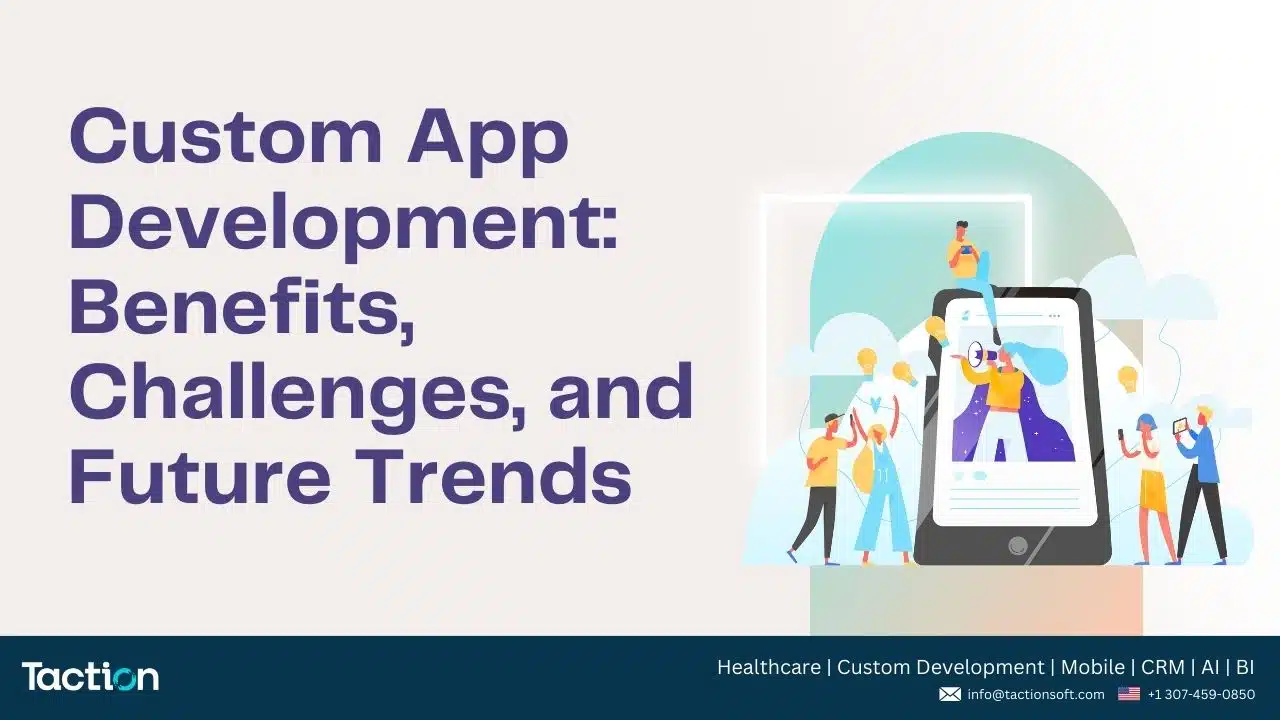Exploring the World of Custom App Development
In today’s digital-first world, businesses across industries are increasingly relying on applications to engage customers, streamline operations, and achieve their goals. While off-the-shelf apps serve basic needs, the growing complexity and specificity of modern business challenges demand custom app development.
Custom app development refers to the process of creating tailor-made software solutions to address the unique requirements of a business or organization. Unlike generic apps, these solutions are designed from the ground up to align with specific workflows, user needs, and strategic objectives.
The Significance of Custom App Development
Generic applications are often designed for a wide audience with varying needs. However, they may lack the features, flexibility, or scalability required for specialized use cases. Custom app development fills this gap by providing a solution that is built specifically for a company’s objectives.
Why Businesses Opt for Custom Solutions:
- Unique Business Needs: Every organization has distinct workflows, goals, and customer bases that require tailored solutions.
- Competitive Advantage: Custom apps can deliver a superior user experience, enabling businesses to stand out in competitive markets.
- Adaptability: Tailored apps grow with the organization, adapting to changes in business processes or market conditions.
Benefits of Custom App Development
Custom app development offers several advantages over off-the-shelf solutions, making it a preferred choice for businesses aiming for long-term success.
1. Personalized Features
Custom apps are built to include the exact features and functionalities a business requires, eliminating unnecessary complexities often found in generic apps.
- Example: A logistics company can create an app with advanced route optimization features tailored to its fleet and delivery zones.
2. Enhanced Scalability
Unlike ready-made solutions, custom apps are designed to scale. Businesses can expand functionality or accommodate increased user loads as they grow.
- Example: An e-commerce platform can develop a custom app that seamlessly handles surges in traffic during peak sales periods.
3. Better Integration
Custom apps integrate seamlessly with existing systems, ensuring a smooth workflow without the need for extensive modifications.
- Example: A manufacturing firm can create a custom app to integrate with its enterprise resource planning (ERP) and supply chain management tools.
4. Improved Security
Security is a top priority in today’s digital landscape. Custom apps are built with the specific security needs of a business in mind, making them more robust than off-the-shelf solutions.
- Example: A healthcare provider can develop a HIPAA-compliant custom app to protect patient data.
5. Cost Efficiency Over Time
While the initial cost of custom app development may be higher, the absence of ongoing licensing fees and the ability to make updates without vendor restrictions often lead to cost savings in the long run.
Challenges in Custom App Development
Despite its numerous benefits, custom app development is not without challenges. Businesses must address these obstacles to ensure successful implementation.
1. Higher Initial Costs
Custom app development requires significant upfront investment in terms of time, resources, and expertise. However, the long-term benefits often outweigh these costs.
2. Longer Development Time
Building an app from scratch can take weeks or months, depending on its complexity. This timeline must align with business objectives and deadlines.
3. Resource Intensity
Developing a custom app requires skilled developers, designers, and project managers, which may strain internal resources.
4. Maintenance and Updates
Custom apps require ongoing support to remain functional and secure. Businesses must allocate resources for regular updates, debugging, and scalability enhancements.
The Custom App Development Process
Developing a custom application involves several key stages. A structured approach ensures that the final product meets business requirements and delivers value to users.
1. Requirement Analysis
This phase involves gathering and documenting the app’s objectives, target audience, key functionalities, and technical requirements. Stakeholder input is crucial at this stage.
- Deliverable: A detailed project scope and roadmap.
2. Design and Prototyping
In this stage, developers create wireframes and prototypes to visualize the app’s structure and user interface (UI). User experience (UX) considerations play a major role in shaping the design.
- Deliverable: Interactive prototypes and finalized design layouts.
3. Development
This is the most intensive phase, where developers write the code for the app. Depending on the project, development may involve front-end, back-end, and API integrations.
- Deliverable: A functional, testable app with core features.
4. Testing and Quality Assurance (QA)
Rigorous testing ensures the app performs as intended across devices and operating systems. This phase addresses bugs, security vulnerabilities, and performance issues.
- Deliverable: A polished, error-free app.
5. Deployment and Launch
Once testing is complete, the app is deployed to the production environment or relevant app stores. Developers may also provide training and documentation to ensure smooth adoption.
- Deliverable: A live, fully operational app.
6. Ongoing Support
Custom apps require continuous monitoring, updates, and optimizations to keep them secure and effective.
Emerging Trends in Custom App Development
The custom app development landscape is constantly evolving, driven by technological advancements and shifting user expectations. Here are some trends shaping the future of this field:
1. Low-Code and No-Code Platforms
Low-code and no-code development tools are making custom app creation more accessible. These platforms allow businesses to build and modify apps with minimal programming expertise.
2. AI and Machine Learning Integration
Custom apps increasingly leverage AI and machine learning for personalized user experiences, predictive analytics, and automation.
- Example: AI-driven chatbots that handle customer inquiries efficiently.
3. Cloud-Based Solutions
Cloud technology enables scalable, cost-effective app development. Custom cloud-native apps offer flexibility and performance across multiple devices.
4. Internet of Things (IoT) Connectivity
Custom apps are being designed to interact with IoT devices, creating seamless ecosystems in industries like healthcare, logistics, and manufacturing.
- Example: Smart home apps that control appliances remotely.
5. Focus on Cybersecurity
As cyber threats grow, custom apps are prioritizing advanced encryption, multi-factor authentication, and other security features to protect sensitive data.
The Future of Custom App Development
Custom app development is poised to play a central role in the digital transformation of businesses. As organizations strive for greater efficiency, scalability, and customer satisfaction, the demand for tailor-made applications will continue to rise.
Key future developments include:
- Greater Automation: Apps will increasingly automate repetitive tasks, freeing up human resources for strategic activities.
- Enhanced Personalization: AI-powered apps will deliver hyper-personalized experiences based on user preferences and behavior.
- Cross-Platform Development: Tools like Flutter and React Native will make it easier to create apps that work seamlessly across devices.
- Sustainability: Green coding practices will ensure that custom apps are energy-efficient and environmentally friendly.
All Over
Custom app development is more than a technical endeavor—it is a strategic investment that empowers businesses to achieve their goals, outpace competitors, and adapt to evolving market demands. While it comes with its share of challenges, the benefits—ranging from personalized functionality to enhanced security—make it an invaluable tool for organizations of all sizes.
As technology continues to advance, custom app development will remain a cornerstone of innovation, enabling businesses to stay agile and future-ready. Whether you’re a start-up looking to make an impact or an established company seeking efficiency, custom apps are the key to unlocking your full potential in the digital age.













